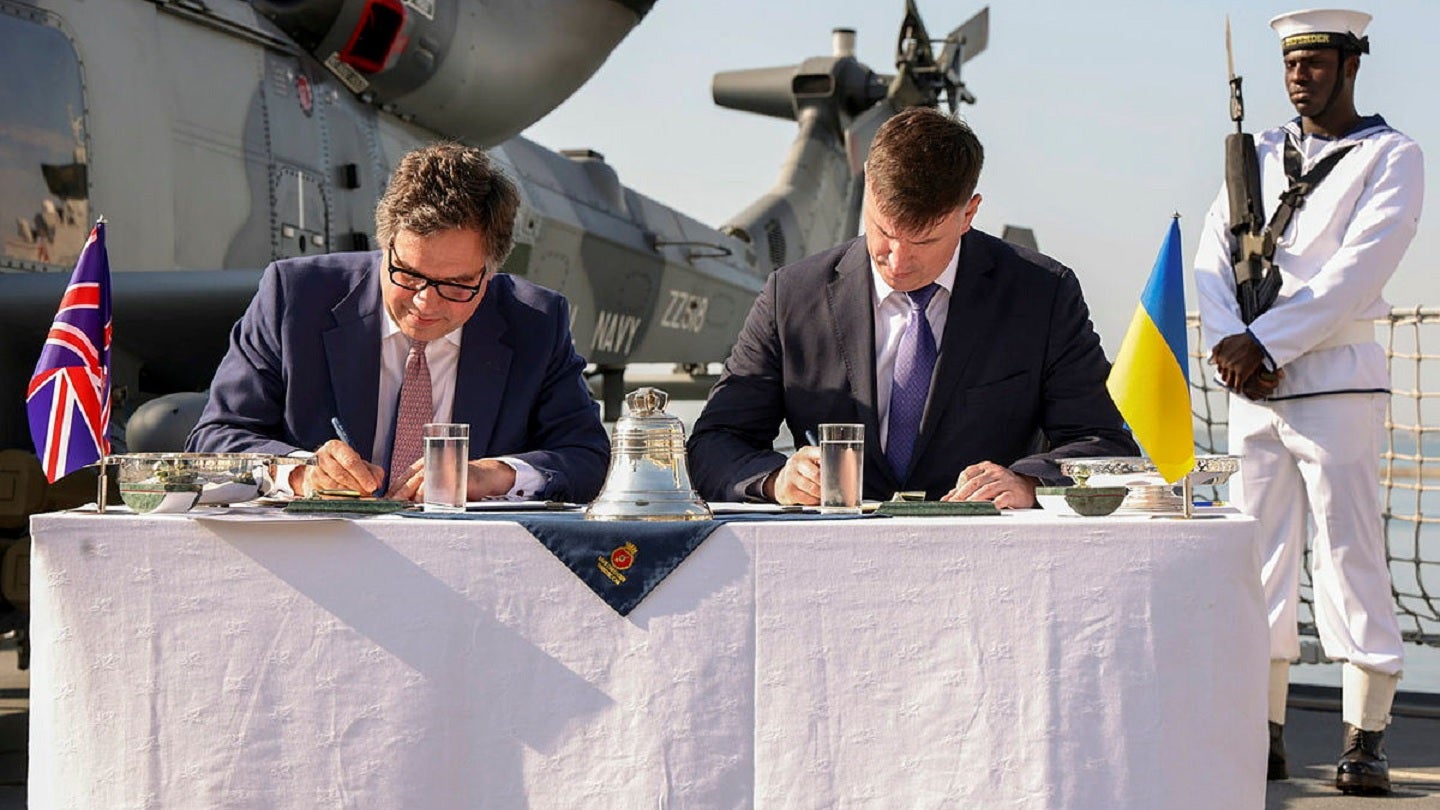
UK defence prime Babcock has joined international companies in the signing of the Ukraine Business Compact ahead of the Ukraine Recovery Conference taking place from 21-22 June, in a move that could leverage the company’s maritime expertise in any future reconstruction of the war-torn country.
Ukraine’s national infrastructure has been heavily impacted following Russia’s large-scale invasion in February last year, with the maritime sector particularly affected as sites as damaged by missile attack or else seized in the early stages of the war by advanced Russian forces.
Port cities such as Mariupol are currently occupied by Russia, while operations within Ukraine’s remaining ports areas are limited due to infrastructure inflicted on Ukraine’s internal network and a Russian naval blockade intended to stymie its ability to import and export materiel.
The ongoing Black Sea Grain Initiative, backed by the UN, Nato member Turkey, as well as Ukraine and Russia, has partially succeeded in exporting Ukrainian grain and foodstuffs into the international market. However, inspections carried out inside Turkish territorial waters to ensure that war materiel is not transported into Ukraine by international allies.
The move by Babcock to ready itself to support Ukraine’s reconstruction could see a return to a previous agreement between the UK and Ukraine that would have seen the company lend its expertise to Ukraine’s efforts to build up its maritime and naval industrial base as well as the manufacture of fast patrol craft for the Ukrainian Navy.
The initiation of UNCEP
In June 2021 Babcock announced that it had signed a tripartite agreement to support the development of Ukraine’s naval capabilities under the Ukrainian naval capabilities enhancement projects (UNCEP), in conjunction with the Ministry of Defence of Ukraine and the UK Government.
Signed on the flight deck of the visiting Royal Navy Type 45 air defence destroyer HMS Defender in the Ukrainian port of Odesa, the programme was intended to see the introduction of new capabilities through the delivery of new naval platforms and defensive shipborne armaments, the training of Ukrainian Navy personnel, the creation of new naval bases, and the purchase of two Sandown-class mine countermeasure vessels.
Babcock International would lead British and Ukrainian industrial partners to assist the Ukrainian Ministry of Defence in delivering these projects, with funding made available by UK Export Finance.
Cut short by the Russian invasion less than a year later, contractual work would have begun to set the framework to implement the future sale of integration of missiles and integration efforts on new and in-service Ukrainian Navy patrol and airborne platforms, including a training and engineering support package.
In addition, the UNCEP programme would have seen the development and joint production of eight “fast missile warships”, and the creation of a new naval base on the Black Sea as the primary fleet base for Ukraine and a new base in the sea of Azov. The sea of Azov is now a Russian lake, following the capture by Russia of large swathes of Ukraine’s southern coastline.
Babcock would also participate in a Ukrainian project to deliver a modern frigate capability, potentially based around the Type 31 frigate currently being manufactured by the company for the UK Royal Navy.
Even prior to Russia’s invasion of Ukraine in 2022, London and Kyiv maintained strong bilateral ties, training 21,000 Ukrainian military personnel under Operation Orbital, which following the outbreak of full-scale war has been renamed Operation Interflex.



